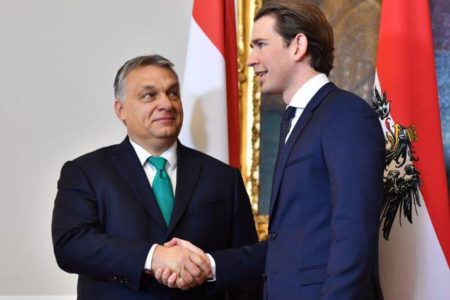Invaders vs. suffering human beings
The EU needs a moderate narrative on migration

Source of the picture: Politico
“I want to live in a house and take my children to school.” Most of the migrants described their ideal life in Western Europe like this, when I talked to them in various camps across Europe in 2015 and 2016. If we dig deep into our hopes and dreams about the future, this core scenario is taken for granted in nearly everyone’s playbook. It’s so obvious that we don’t even think about it. The tragedy behind these stories lies in the fact that most of those people risked their life to cross battlefields, seas or deserts, having only this vague idea in their mind, without any clue what they would exactly do in Europe in order to realize this dream.
No doubts, every human being has the right to live in a house and take their children to school. I don’t think that even the harshest anti-migration campaigner would deny it. Still we Europeans, neither have a clue about who should take the responsibility to ensure these rights for third-country nationals, nor we are able to draw clear lines between refugees and economic migrants in many cases. Either we share the pain of each individual seeking for a decent life, or see them as threatening mass of “invaders”. We just don’t dare to engage into a moderate approach between the hysteric nationalism and the endless humanity.
And this fits European politicians very well. They seem to simply refuse a balanced and honest debate about the topic. Sometimes I think that one’s stance on migration will soon be the main factor to predict voting preferences. Political parties have been struggling for a while to counterbalance the death of classic political and societal cleavages. But finally, they have found a new issue that divides the masses, and brings them votes accordingly.
Hungarian PM Viktor Orbán and Austrian Chancellor Sebastian Kurz met this week. In December, the leader of the Austrian liberals, Matthias Strolz compared Kurz to Orbán, who used to be the “hope of the future”. But despite Orbán’s talents, his political career was misguided by his excessive lust for power and the lack of a moral compass. Well, whether it will turn out to be true for Kurz, the two politicians started a new chapter in the European history of “bromances”, and found a common ground on the fight against illegal migration.
These strong statements are a bit ironic from the perspective of the Hungarian-Austrian border. It doesn’t really face any kind of treat from illegal migrants, while the situation at the Italian-Austrian side is completely different. But because we mainly talk about a belief or religion, facts don’t matter at all. Voters are happy to hear that they are protected against some faceless mass of people and politicians are happy to please them.
The other side of the narrative only looks at the individual cases. The German coalition talks have made an important breakthrough this week, when they finally reached a deal on the extension of the moratorium on family reunification. The country will continue to take only 1000 family members of refugees per month, and an undefined number of “hardship cases”. Even though the agreement was a logic and still generous solution, the German daily Tageszeitung labelled it as the “coalition of heartlessness”, while the charity organization Kinderhilfswerk called it a “human rights catastrophe”. Even the SPD felt that they are getting out of from their narrative, so they reassured their supporters that they would advocate for more hardship cases.
The EU has been also criticized by many for spending around 1 million euros on information campaigns to raise awareness on the dangers of illegal migration. In his opinion piece published at the website of Al Jazeera, Fabian Wagner from the Federation of Young European Greens talks about an event in Abidjan, where the football legend Didier Drogba and musicians pushed to get through the message “you should not migrate!”. The author argues that the EU should rather change its tariff regulation towards African states in order to encourage the export of processed products instead of raw materials.
Even if this argument is a bit over-simplified, because massive investment, skilled workers and stable political environment are needed for a successful industry, the idea seems to be the only viable solution in the long term for European politics. People will always seek for a better life. If they got deeply engaged by a dream, no smooth talk, danger to life, border fence or soldiers can stop them from coming. We can’t deny it. As we should also be honest to ourselves, and say that we can’t accept them all, even if they are human being who deserve better. The only way forward is to stop seeking votes with strong statements on migration, and start a balanced debate about what the EU and member states can actually do in order to help people to have a house to sleep in and school to bring their children to.
